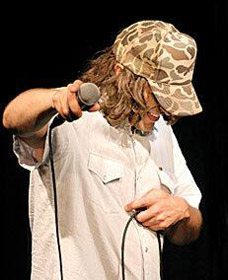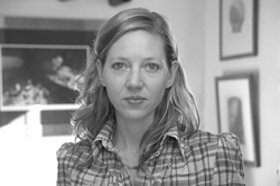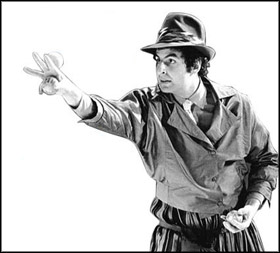Well, I try not to judge myself. I try to be “my own best friend.” [laughter] Which is a lie. But I try not to get too wrapped up in the difficulty of the moment because I’ll just wallow in that for as long as I like, feeling bad for myself. So what I do is, I read. I play music. I have conversations with my friends about poetry or writing or whatever they’re working on. I walk my friend’s dog. I travel a lot. Whatever fills up that time. And I’m always thinking about my story, whatever I’m doing, as I’m doing it. And I think that’s incredibly helpful. I just allow myself to never lose sight of my art-piece and to live life.
Do you ever worry about burning out?
I think yesterday at one point it went through my head that “you’re not going to write this story, so why don’t you just quit it now?” [laughter] And I thought “But oh no! I have all these other things I have to do!” Because I have so many different story ideas that I can’t wait to pick up again and write. So I’m not at a loss for ideas. I’m just sometimes at a loss for how to put it together.
Right now I’m teaching myself how to write a novel. I’ve never written a novel before. The Sloppy Copy Slipup was humorous. And it’s pretty easy for me to be humorous and write short, clippy, fun things. But this is for fifth grade as opposed to third grade and they want a little bit more.




